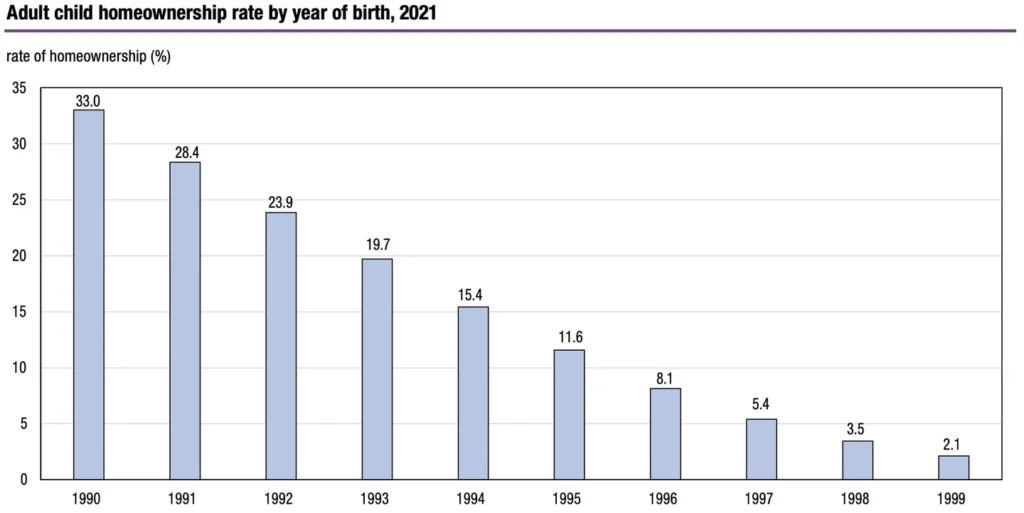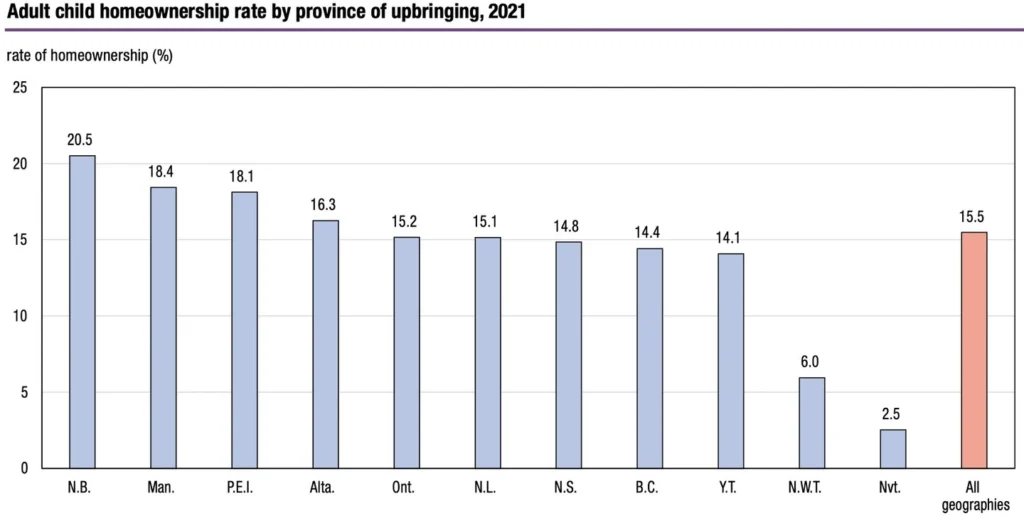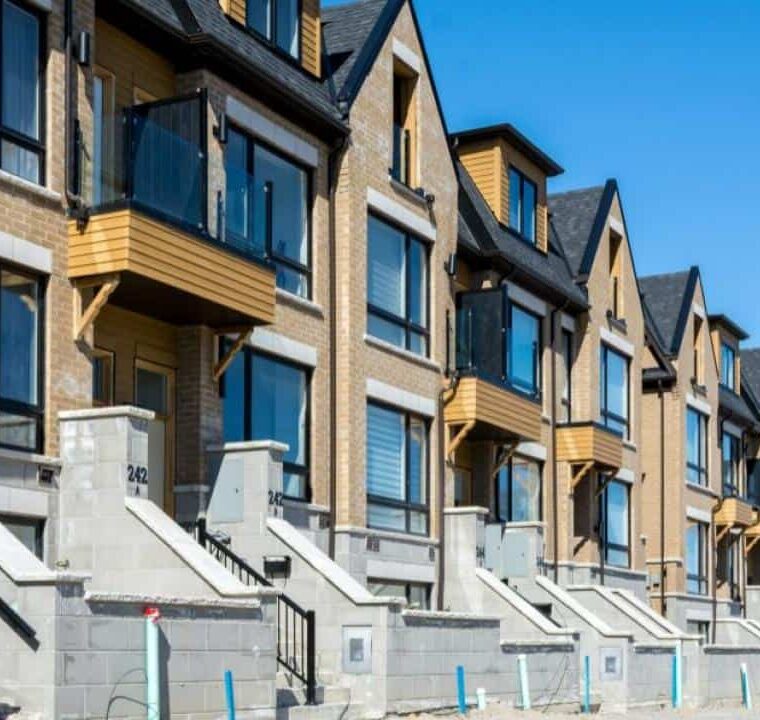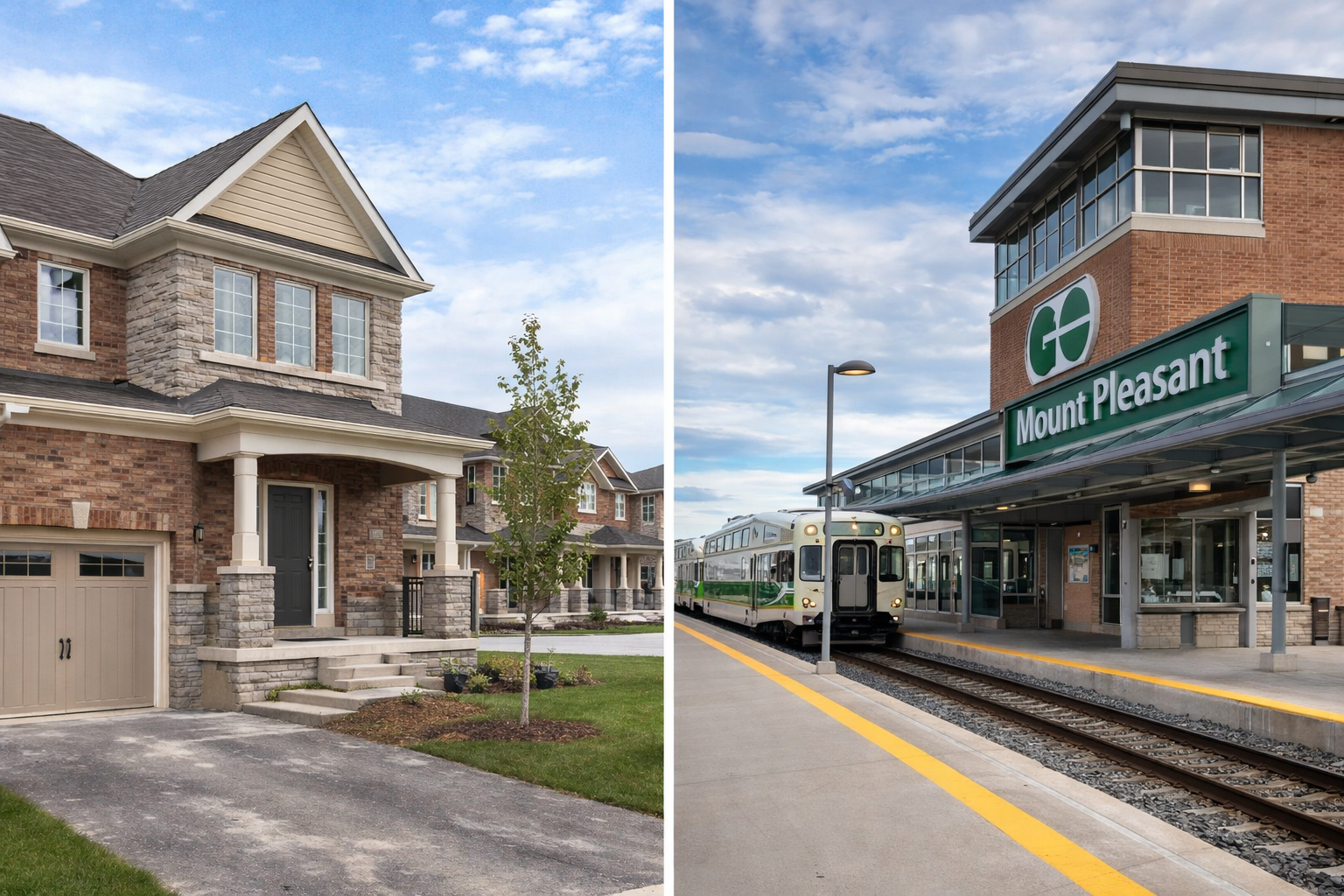Achieving homeownership is a significant milestone, and recent research sheds light on the correlation between parental property ownership and the likelihood of their adult children owning homes. A comprehensive report from Statistics Canada explores the intricate connections between age, income, province, and the influence of parents’ property holdings on the homeownership rates among Canadians born in the 1990s.
Parental Influence on Homeownership Rates:
According to the Statistics Canada report, the homeownership rate among Canadians born in the 1990s was 17.4% in 2021 for those whose parents owned a home, compared to just 8.1% for those with parents who did not own property. This robust positive relationship persisted even when considering factors like income, age, and province of residence.

Impact of Parents’ Property Portfolio:
The report highlights a noteworthy connection between parents owning multiple properties and their adult children’s ability to own a home. For those with parents owning multiple properties, the ownership rate jumped to 23.8%, reinforcing the link between “parents’ housing wealth” and their children’s ability to own a residence.
Income Disparities and Homeownership:
Income levels played a significant role in homeownership, with a “significant difference” observed between home-owning and non-home-owning individuals. Homeowners had an average income of $65,000, compared to $36,000 for non-homeowners. Even if adult children did not own homes, their incomes were higher if their parents owned property.
Age and Homeownership Rates:
The likelihood of owning a home increased with age, as evidenced by the report. Canadians born in 1990, at age 31 in 2021, had an ownership rate of 33.0%, nearly twice that of those born in 1994, aged 27, with a rate of 15.4%. This pattern is expected due to factors such as increased work experience, higher rates of cohabitation, and greater educational attainment.

Geographical Variances:
The report highlighted regional differences in homeownership rates, with young adults from New Brunswick leading at 20.5%, followed by Manitoba (18.4%) and Prince Edward Island (18.1%). British Columbia had the lowest homeownership rate at 14.4%. However, regardless of location, parents’ property ownership was consistently associated with an increased likelihood of their adult children owning homes.

The Statistics Canada report emphasizes the enduring influence of parental property ownership on the homeownership rates of their adult children. Understanding these dynamics is crucial for individuals navigating the real estate market, as parental support continues to play a pivotal role in addressing the challenges of housing affordability.







